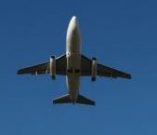The Department of Transportation (DOT) has pushed back a decision on whether or not airlines should be required to supply consumers with information about all travel fees.
The ruling is now expected in May.
The delay may be due to the large amount of information that the Department has received from airlines and consumer advocate groups alike.
Finding the cheapest price for airfare is usually the main objective for travelers. But airlines have been making it difficult to comparison-shop with all of the extra (and sometimes hidden) fees that they are charging.
Many airlines are charging extra fees for baggage, extra leg room, preferred seating and more. Extra fees are usually introduced near the end of the booking process. Additionally, it has been reported that information about these extra fees are not being supplied to third-party booking services, making comparison-shopping difficult.
Many travelers use third-party booking services such as Expedia or Orbitz for booking their flights. Using these services allows travelers to view the rates of multiple airlines at one time – but without information about extra fees, third-party booking services are not able to easily supply information about the best deals.
The harder airlines make it for consumers to compare, “the greater opportunity you have to get to higher prices,” stated Kevin Mitchell, chairman of the Business Travel Coalition. Members of that organization include corporate travel managers.
In addition, access to special amenities often prompt travelers to supply personal information such as gender, date of birth, nationality, and marital status. Questions linger for consumer advocates about how the airlines with safeguard such sensitive information. The International Air Transport Association adopted the practice of gathering personal information to allow airlines to customize rates for travelers.
“Technology is changing rapidly. We are going to be part of the change,” stated Sharon Pinkerton, vice president of Airlines For America, which represents a majority of U.S. based airlines. “We want to be able to offer our customers a product that’s useful for them, that’s customized to meet their needs, and we don’t think (the Transportation Department) needs to step in.”
Nearly a year ago an appeals court upheld a DOT ruling that airlines would no longer have leeway with how they advertised their airfares and the corresponding taxes. A common practice was to post the taxes separately and in smaller print than the advertised fare.
Allegiant Airlines, Southwest Airlines, and Spirit Airlines – with support from industry trade associations – have asked the U.S. Supreme Court to reverse an appeals court ruling that required them to post taxes with their advertised fares. The airlines are arguing that the DOT’s ruling violates their right to free speech.
Have you recently taken a trip by air? What was your experience with booking and pricing? Please share your comments in the comments section below!




